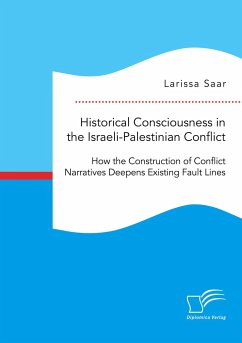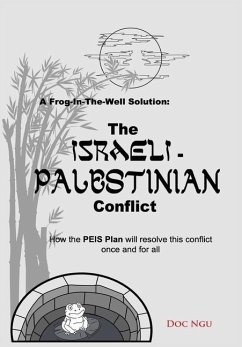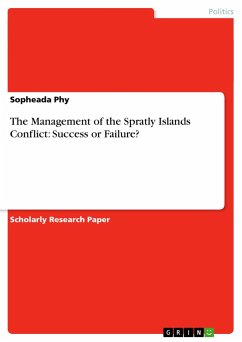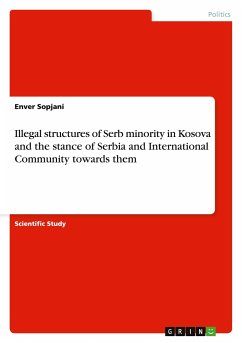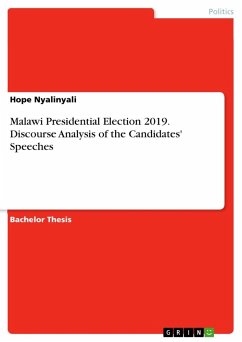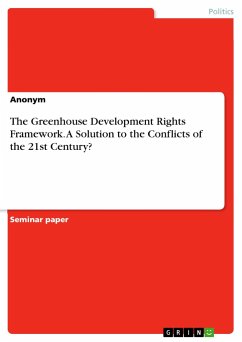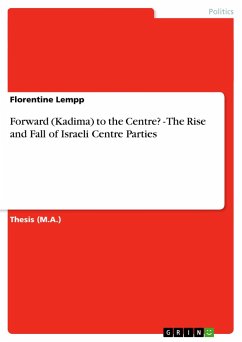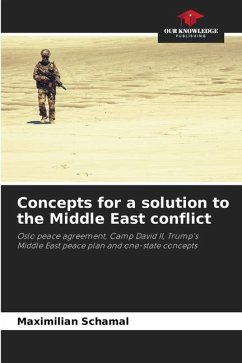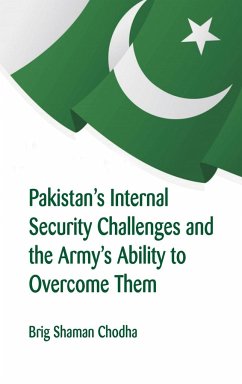
A Different Solution to the Arab Israeli Conflict: Let them be.

PAYBACK Punkte
0 °P sammeln!
Essay from the year 2011 in the subject Politics - International Politics - Region: Near East, Near Orient, grade: 1,7, University of Haifa (International School), course: Arab-Israeli Relations, language: English, abstract: Considering the numerous efforts to reach an agreement between the conflict parties and that all of them failed sooner or later because of specific issues in which none of the parties is ready to compromise - namely Jerusalem, settlements in the West Bank, refugees and the nature of a Palestinian state - one could start to assume that peace will never be reached in the Mid...
Essay from the year 2011 in the subject Politics - International Politics - Region: Near East, Near Orient, grade: 1,7, University of Haifa (International School), course: Arab-Israeli Relations, language: English, abstract: Considering the numerous efforts to reach an agreement between the conflict parties and that all of them failed sooner or later because of specific issues in which none of the parties is ready to compromise - namely Jerusalem, settlements in the West Bank, refugees and the nature of a Palestinian state - one could start to assume that peace will never be reached in the Middle East, especially not in the Israeli-Palestinian conflict. That assumption however is based on the wrong attitude towards the whole region and the conflict in general. Western societies tend to devolve their own mentality and culture on other world regions and expect the same outcome as they produce in Western cultures. That is not only arrogant but also impossible: The Middle Eastern culture and mentality is completely different than ours and even if one could argue that at least the Israeli state is Western-orientated and comparable to Western democracies, that is definitively not the case for the Arab and Muslim states in the region. Once we realize and accept that those states' mentality is completely different, we should ask ourselves whether it is really the best way to force the conflict parties to negotiate with each other or to try to impose our values and structures on them. The past has shown that this behavior rather produces a negative outcome and can even exacerbate the situation.




